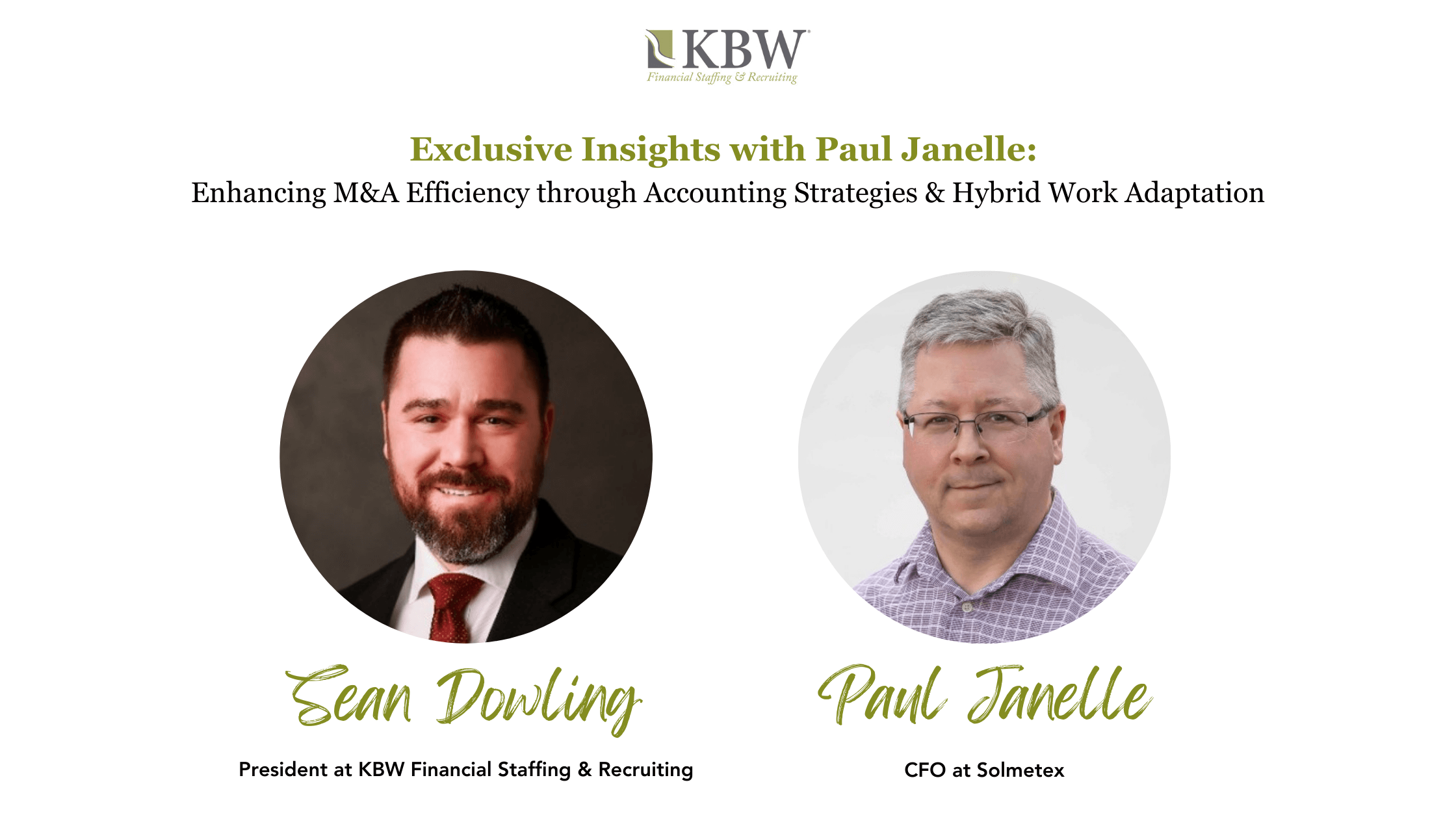
Paul Janell is the CFO of Solmetex, a niche provider of dental water filtration systems. With 25 years of experience in the medical industry, including a significant tenure at an optical eye care company, Paul has a robust background in mergers and acquisitions (M&A). At Solmetex, he has led three acquisitions in the past three years and has completed approximately 25 acquisitions throughout his career. He manages a finance and accounting team of 12 professionals, including four direct reports.
The M&A market in Boston has been quiet for the past two years, despite its strong ecosystem. There’s significant capital on the sidelines, with investors ready to act. What’s your perspective on the next few months? Are you seeing any activity or hearing from your network about movement in the market?
My experience is deeply rooted in the private equity market, and you’re right—there’s a lot of capital available. Private equity groups continue to raise funds, but rising interest rates have made it harder to achieve a good return on investment, which has led many to hold off on deals. That said, the expectation is that 2025 will be much more active, especially with the potential for lower interest rates. There’s a strong sense that both sellers and buyers in the private equity space are preparing for increased deal flow. We’ve completed three acquisitions in recent years, but we’re currently focused on integrating those companies. However, from what I’m hearing, 2025 will see a significant uptick in M&A activity.
For companies preparing to sell in M&A transactions, what accounting and financial considerations are crucial for positioning themselves effectively? Conversely, what challenges might the acquiring companies face in evaluating a target’s financials, and how can they ensure the accuracy and credibility of the information?
In both selling and acquiring companies, the focus on accurate financials is crucial. For sellers, it’s important to ensure all financial records are reconciled and that a reliable accounting team is in place. Clean and credible financials will boost buyer confidence, and having an external accounting firm conduct due diligence can enhance credibility. For buyers, a thorough examination of the financials is essential, as discrepancies can emerge, making detailed due diligence a key step in the process.
Do you employ consultants or contract staff to support M&A activities and alleviate the burden on your internal team? Given the lean nature of many accounting departments, how do you integrate external expertise into your strategy during these transactions?
Yes, we utilize outsourced consultants with specialized skills to support our M&A activities. For instance, we have a consultant who dedicates 10-15 hours per week to assist with integrating financial systems from newly acquired companies and handling M&A diligence tasks. Additionally, we have another consultant managing QuickBooks for these acquisitions. This approach helps prevent overburdening our internal team and ensures efficient integration without compromising on quality.
What are your considerations for hiring when a company is rapidly acquiring and scaling? How do you manage the integration of acquired staff and adjust your strategy accordingly?
During acquisitions, integrating accounting functions is crucial. We evaluate the processes of the acquired company and determine if they can be unified with our existing systems. We also assess whether our current staff can manage the increased workload or if additional resources are needed. For acquisitions in different locations, we decide whether to retain the existing staff or centralize operations. After acquiring three companies, we found that our accounting team needed restructuring to support the expanded business. Consequently, we replaced most of the team to better align with our future acquisition plans, finding that hiring new staff was more effective than upskilling the existing team.
How do you value curiosity and creativity in accountants, particularly in the context of identifying issues during M&A transactions?
In M&A transactions, hiring accountants with curiosity and creativity is crucial. While technical accounting skills are fundamental, soft skills such as adaptability and problem-solving are vital. Accountants who proactively investigate underlying issues and propose solutions significantly enhance the M&A process by identifying potential problems early and contributing to effective resolutions.
During M&A activities? Do hybrid or remote work arrangements affect the development of ‘curious accountants’, particularly in terms of direct interaction with senior staff?
Hybrid models are generally effective, but fully remote arrangements can be detrimental. Remote workers often miss valuable in-person learning opportunities, such as observing interactions between senior staff and consultants. This lack of direct experience can hinder their professional development, as they miss out on critical ad hoc learning moments and insights into senior-level operations. For M&A activities, where understanding and integrating different financial systems and processes is crucial, hybrid setups are more beneficial for fostering growth and ensuring effective participation in the integration process.
Wrapping Up
In conclusion, Paul Janell’s insights emphasize the critical role of strategic accounting practices in M&A and the benefits of hybrid work for professional development. His experience highlights the importance of maintaining accurate financial records and adapting team structures to support successful acquisitions and integrations.
